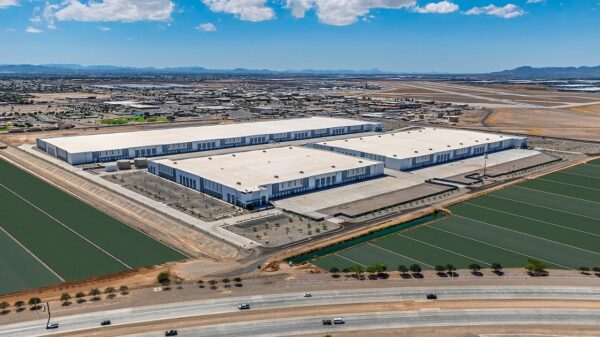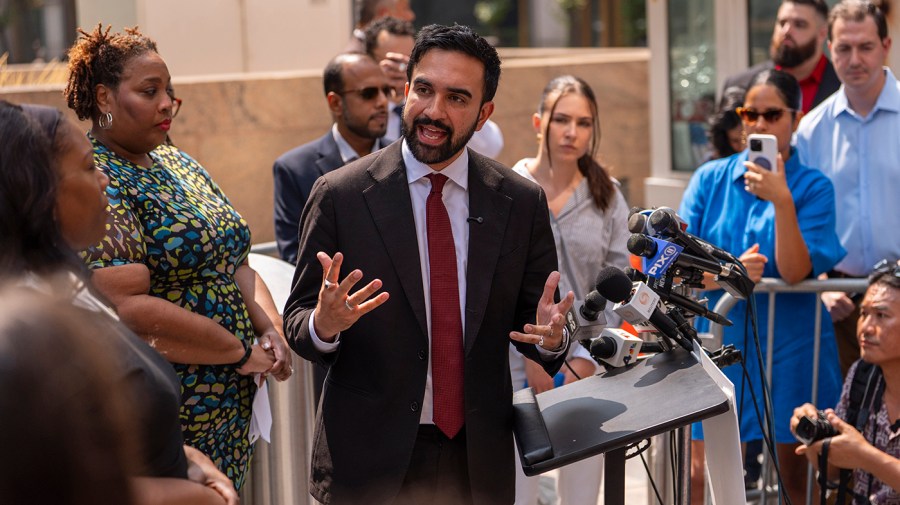Progressive candidates are gaining significant traction in major city mayoral races, reflecting a potential shift within the Democratic Party as it grapples with its future direction. Last week, Seattle community activist Katie Wilson garnered attention by leading the nonpartisan blanket primary, securing approximately 51 percent of the vote against incumbent Bruce Harrell, who received 41.4 percent. This development comes against the backdrop of recent victories by progressive candidates in other major cities, indicating an upswing for the left flank of the party.
Wilson’s performance in the primary, which positions her ahead of Harrell as they prepare for the general election in November, has energized progressive supporters. Her campaign manager, Alex Gallo-Brown, expressed optimism about the momentum for progressives: “Our hope is that there’s a real moment for progressives, for folks who want to see change or are upset with the status quo.”
The Democratic Party has been reflecting on its strategy since facing losses in the previous November elections. This internal struggle between the moderate and progressive factions has intensified, particularly following the defeat of former Vice President Kamala Harris in the 2024 election. Critics within the party have pointed fingers at progressives, suggesting they contributed to the perception of the party being too far left. Despite recent setbacks, including significant losses for progressive candidates in both congressional and local races, the latest mayoral results have reignited hope.
One of the most notable victories came from Zohran Mamdani, a member of the New York State Assembly, who triumphed over former Governor Andrew Cuomo in the Democratic primary. Mamdani, supported by the Democratic Socialists of America (DSA), achieved a surprising victory, winning by double digits in a ranked-choice voting system that had not favored him in pre-election polling.
In Minneapolis, another DSA-backed candidate, Omar Fateh, is positioning himself against the incumbent mayor Jacob Frey, who is seeking a third term. Fateh recently secured the city party’s endorsement, although Frey is contesting the decision, arguing that the process was flawed. This endorsement signifies a proxy battle in the election, with Fateh declaring, “This endorsement is a message that Minneapolis residents are done with broken promises, vetoes, and politics as usual.”
As the Seattle mayoral race unfolds, issues such as affordability and public safety dominate the discussion. While Harrell highlights declining violent crime rates and advocates for increased police hiring, Wilson has criticized him for rising living costs and housing affordability. She has refrained from calling for defunding the police, yet she emphasizes the need for alternative approaches to non-criminal calls.
Harrell responded to the primary results by acknowledging the concerns voters expressed during his campaign’s outreach. He stated, “You don’t want to sacrifice a proven leader, just because there’s impressive-sounding rhetoric that seems to excite people.” He emphasized his accomplishments and the need for capable leaders to effect change.
Despite the enthusiasm surrounding progressive candidates, some Democrats urge caution. Corey Day, a former executive director of the Minnesota Democratic-Farmer-Labor Party, pointed out that the dynamics of the Minneapolis and Seattle races differ from those in New York City. He noted that Frey has the advantage of a clearer electoral landscape without the controversies that plagued Cuomo.
As both cities prepare for elections under ranked-choice voting, the outcomes remain uncertain. Frey’s incumbency and established progressive credentials may play a crucial role in the final decision. In Seattle, political strategist Ron Dotzauer anticipates higher turnout in the general election, which could favor both candidates depending on voter engagement.
The enthusiasm for progressive candidates, as demonstrated by the DSA’s recent convention, highlights a growing desire among voters for representatives who advocate for the working class. Ashik Siddique, a DSA co-chair, remarked, “People are very motivated to see people like Zohran and Omar and others all over the country really standing up for clear economic demands.”
As the November elections approach, the landscape for major city mayoral races appears increasingly competitive. Both Wilson and Harrell, along with Fateh and Frey, will need to articulate their visions and policies clearly to engage voters effectively in what promises to be a pivotal moment for the Democratic Party.





































































